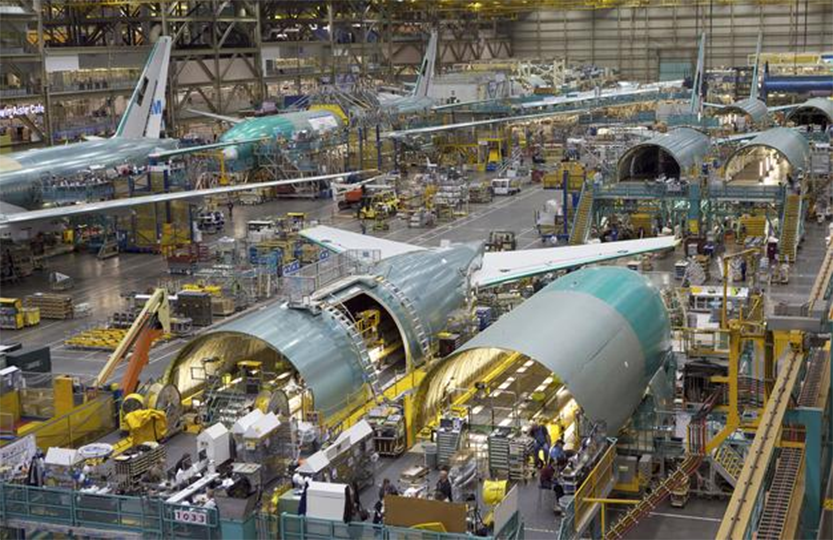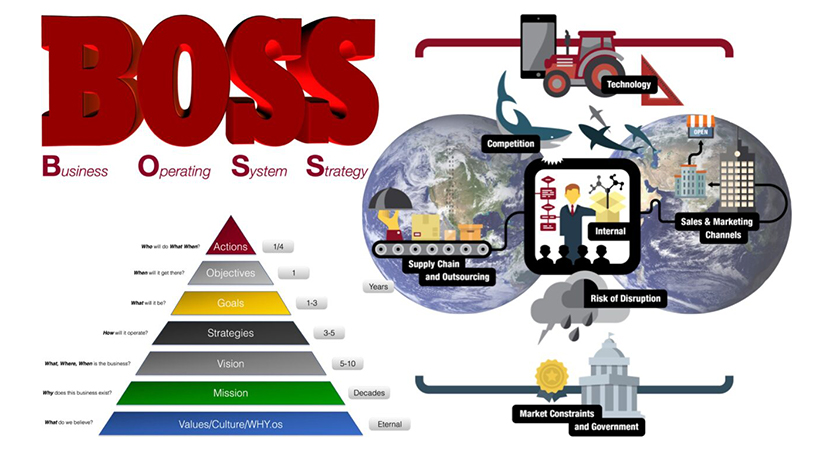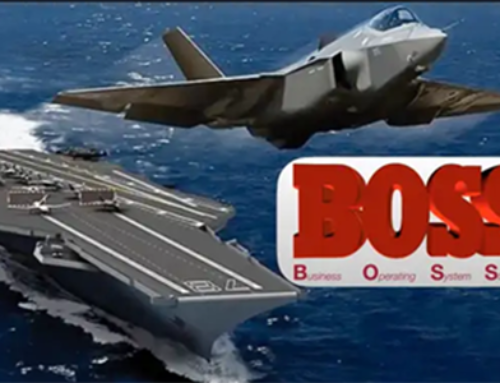Debra Mervyn- The Mervyn Group
March 7, 2024
Recently, shocking quality lapses appeared in multiple industries. Food is being recalled for contaminants. Cars are being recalled for software errors. New electric cars have more to repair than expected—fewer parts, but more complexity. Appliance design life, long known for planned obsolescence is becoming even shorter and repair more difficult (WSJ Article).
While air travel is the safest form of transport, it’s in the news lately, from airplanes crashing and bursting into flames on a highway to near crashes on the runway and in the air, to parts failing in flight such as wings and doors. Let’s look at Boeing in the news and provide observations and opinions on its business and quality journey.
The National Transportation Safety Board (NTSB) published its preliminary findings regarding the Boeing Mis-Installed 737 MAX 9 Door Plug That Blew Off. What are the events that led to this incident?
- “Spirit AeroSystems manufactures the fuselage of the 737 MAX 9; the door plug was manufactured in Malaysia on March 24, 2023, and was sent to Spirit AeroSystems’ Wichita facility on May 10, 2023
- The door plug was installed and rigged on the fuselage, and then shipped to Boeing on August 20, 2023, arriving at Boeing’s Renton facility on August 31, 2023
- On September 1, 2023, records show that a report was written about five damaged rivets on the edge frame forward of the left door plug; in order to repair this, four bolts had to be removed from the door plug.
- The rivets were repaired correctly, but then the door plug was re-installed without the four bolts, which is obviously the major issue that caused this mess
- The NTSB notes that “the investigation continues to determine what manufacturing documents were used to authorize the opening and closing of the left MED plug during the rivet “rework.”
Photo courtesy of aviation.stackexchange.com
The FAA has given Boeing 90 days to provide a plan to address its quality issues.
Boeing’s website describes it quality system:
“The Boeing Quality Management System (QMS) is based on AS9100 which is the internationally recognized and premier aerospace QMS standard. Boeing, as well as other major aerospace manufacturers, flow down AS9100 certification and compliance to its suppliers in order to enable effective and efficient processes that meet multiple customer, statutory and business requirements.”
Boeing’s quality management systems include stringent requirements that should have addressed each finding in the NTSB report (above):
- Suppliers- Qualification and manufacturing, test and inspection
- Boeing- Incoming inspection and test
- Boeing- Nonconforming material processing and rework, repair, reinspection and test
- Boeing- Reassembly and reinspection and test
- Boeing and Supplier- Document and record control
Supplier management processes and quality procedures and inspections are integral to operations and required by the AS9100 system. What went wrong? Is this a misfortunate one-off occurrence or a pattern?
Since the merger of McDonnell Douglas with Boeing in 1997 the organization business and quality systems have changed. In a clash of corporate cultures, where Boeing’s engineers and McDonnell Douglas’s bean-counters went head-to-head, the smaller company won out. The result was a move away from expensive, ground-breaking engineering and toward what some called a more cut-throat culture, devoted to keeping costs down and favoring upgrading older models at the expense of wholesale innovation. Leadership shifted focus to the Shareholders instead of engineering and innovation.
In the last four years, Boeing, like many companies, experienced significant changes.
Suppliers and Procurement
Spirit AeroSystems was formed when Boeing Commercial Airplanes sold its Wichita division to investment firm Onex Corporation in 2005. Now Boeing is in Talks to Buy Spirit AeroSystems, a Struggling Supplier.
Were existing problems associated with suppliers exacerbated by Covid?
During Covid, Supplier lead times and product quality suffered and have not returned to normal. Companies are still planning procurement two years out. Raw materials are a challenge due to geopolitical issues (i.e. war). Printed circuit board part availability continues to be a problem as manufacturers prematurely notify Customers of product End of Life. Larger companies are buying up extra ‘safety stock’ when material becomes available, leaving little in the supply chain for smaller companies who don’t have extra working capital to hold inventory. Suppliers are being acquired, unbeknownst to their Customers, after the deal is complete. Quality is still suffering.
Workforce- Turnover and Knowledge
Unionized workforce for Boeing and Spirit Aerosystem laid a rocky foundation for the events of 2019.
The Boeing 737 Max was grounded in 2019. Once Covid hit in 2020, layoffs were inevitable. In an effort to save money Boeing offered senior employees Voluntary Layoff’s which along with retirements led to the company’s intellectual capital being replaced by younger, less experienced and lower quality employees. Boeing froze pensions in 2016 and offered new employees a 401K (no pension). To make up for the employee deficits, the company rehired retired employees as contractors to fill the gap.
New employees came with less incentive to work and demanded higher wages and benefits. The gaps in K-12 and higher education have become glaringly apparent to parents and families and businesses over the past 10 – 15 years. (Learn more about workforce issues, statistics, and solutions in Demographic Drought .)
Management
Boeing’s leadership and management has changed significantly over the past 20 plus years.
“In the late 1980s T.A. Wilson, the last Boeing CEO with an engineering background, was replaced by Frank Shrontz, an attorney and businessman. The choice was a signal to Wall Street that engineering excesses would be curbed in favor of cost discipline and investor rewards.
From 1998 to 2018, Boeing did $61 billion worth of share buybacks to pump its stock price and paid out $29.3 billion in dividends. Over these three decades of plenty for Boeing’s shareholders, the company’s staff was asked to penny-pinch. The focus was directed away from engineering to business.” Business Insider.
“Leadership is the art of getting people who want to do what must be done.” President Eisenhower.
Changed or not it appears processes, procedures and requirement were not effectively communicated by management and implemented to enable people and processes to respond appropriately?
How effective are your Business, B.O.S.S. and quality systems?
Has your organization experienced similar problems in the past 5 years? Your challenges or incidents may not result in an inflight aircraft failure but create business threatening risk and/ or financial losses. In these challenging post Covid times, it is more important than ever to ensure business systems, including quality, are effective and efficient.
B.O.S.S. is a company’s overall Business Operating System Strategy. It encompasses culture, strategy and tactics. B.O.S.S. involves positioning product in the market and includes all processes including sales, finance, legal requirements, etc. A big part of B.O.S.S. is quality systems in all aspects of business. Ensuring you have a robust B.O.S.S is an essential foundation for success.
Sophisticated procurement strategies and Supplier risk assessment, management and partnering are keys to minimizing impacts. Learn More. Robust quality systems, including documented standard work, capture organization intellectual property instead of relying on “tribal knowledge” and enable new employees to ramp up quickly. Business and quality systems improve top line and bottom-line performance and reduce risk.
Is it time to reevaluate your business and quality processes, workforce, supply chain, and management systems? Yes.
Introduction to TMG team
The Mervyn Group is partnering with colleagues to deliver rapid and effective solutions to these challenges in aerospace and defense and other market sectors. We will evaluate your organization’s B.O.S.S. and Quality Systems and partner with you to quickly implement solutions and sustainable improvements. We will help reduce risk, decrease costs, and improve profitability. We will measure it!
Meet the Team
Debra Mervyn has over 25 years of Aerospace and Defense experience starting with process engineering and improvement work for a jet turbine engine housing manufacturer (Precision Castparts). Over the last 18 years, Debra led quality system implementations and improvements for a variety of clients to meet AS9100D (aerospace) and ISO 13485 (medical device) requirements. This work includes design controls, new product introduction, Suppliers and procurement, manufacturing, and operation excellence.
Paul Menig has been involved in the design and manufacturing of aerospace, military, industrial, medical, automotive, truck equipment, and vehicles for fifty years. After graduating from MIT, Paul worked at General Electric, Eaton, and Daimler. At Daimler, he lead the Mechatronics group responsible for electrical harnesses, electronics, brakes, and safety systems working with colleagues across the world. As a consultant Paul specializes in guiding leaders to develop long-term strategies to accelerate profitable growth, generate revenue, and building teams and systems to improve efficiency. He assists companies in manufacturing, technology, and aerospace, industrial automation and defense industries.
Julie Ring has over 30 years’ experience supporting Boeing Aerospace and Defense programs including electrical/functional testing, production, aircraft modifications, quality control, internal audits as well as performing 2nd party audits at Maintenance, Repair and Overhaul (MRO) suppliers. Julie is a certified AEA for AS9100D, AS9110C and AS9120B and has been performing 3rd party audits for over 2 years.
Diane Gibson has over 30 years of experience spanning aerospace, aviation, and manufacturing sectors. This experience includes leadership and quality roles in Sundstrand (now Collins Aerospace). Diane focuses on helping organizations improve their effectiveness through alignment of strategy, structure, people and processes. Diane leads improvement initiatives in strengthening leadership and management skills, optimizing organizational structure, and developing a strategic workforce design.
Learn more about evaluating and optimizing your business and quality systems. Contact Debra Mervyn- Debra@MervynGroup.com






